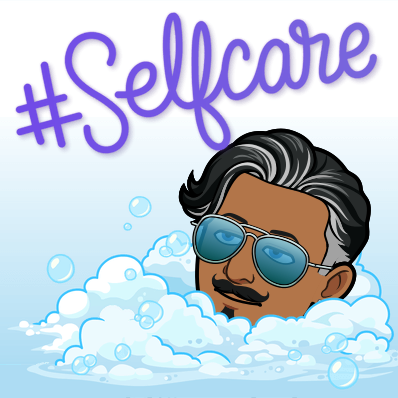❤️DMER mumbai exams 2023 ❤️ nursing syllabus short review ❤️
Nursing is an essential aspect of healthcare, encompassing a range of skills and knowledge necessary for patient care. Fundamentals of nursing are the cornerstone of healthcare delivery, and one critical element of nursing is first aid. In this article, we will explore the fundamentals of nursing and discuss first aid.
DMER Mumbai Staff nurse Syllabus
2023
Staff Nurse :
1. Sociology
2. Community Health Nursing
3. Psychiatric Nursing
4. Microbiology
5. Professional Trends and Adjustment
6. Medical-Surgical Nursing
7. Fundamentals of Nursing
8. Psychology
9. Anatomy and Physiology
10. Pediatric Nursing
11. Midwifery and Gynecological
Nursing.
General Aptitude Test :
1. Trains related questions
2. Arithmetic Series
3. Analogies
4. Relationship, Similarities
5. Coding and Decoding
6. Non-verbal series
7. Figures Classification
8. Differences
9. Arithmetical Reasoning
10. Discrimination
11. Spatial Visualization
12. Visual Memory
13. Time and Work
14. Averages
15. LCM
16. HCF
17. Percentages
18. Partnership
19. Time and Distance
20. Profit and Loss
21. Ratios
22. Proportions
23. Interest.
General English :
1. Grammar
2. Vocabulary
3. Comprehension
4. Direct
5. Indirect
6. Active voice
7. Antonyms
8. Synonyms
9. Noun
10. Pronoun
11. Verb
12. Adverb
13. Adjectives
14. Tenses
15. Passive Voice
Fundamentals of Nursing
The practice of nursing involves providing care to patients by addressing their basic needs and promoting health. The primary goal of nursing is to develop and maintain a therapeutic relationship with the patient, thus providing the necessary care and support required for optimum health outcomes.
The nurse-patient relationship is the foundation for safe and effective nursing care. A nurse needs to possess excellent communication skills, empathy, and knowledge of the human body, disease processes, and medical terminology. Furthermore, competent nursing care requires a thorough understanding of anatomy and physiology, pharmacology, and the ability to interpret diagnostic tests accurately.
First Aid
First aid is the initial care provided to an individual who has suffered an injury or sudden illness. The primary goal of first aid is to preserve life, prevent further injury, and promote recovery. Nurses are often the first responders in an emergency, making first aid an essential part of nursing care.
The following are some common first aid scenarios that nurses may encounter:
1. Bleeding – In the event of severe bleeding, a nurse may apply direct pressure to the wound using a sterile gauze. Elevating the affected limb can also help to reduce blood flow.
2. Choking – If a patient is choking, a nurse can perform the Heimlich maneuver to help dislodge the blockage.
3. Burns – In the event of a burn, a nurse can cool the affected area with cold water for at least 20 minutes. Severe burns require immediate medical attention.
4. Seizures – Patients experiencing a seizure require a calm and reassuring presence. A nurse should ensure that the patient is in a safe location and remove any objects that could harm the patient.
5. Cardiac Arrest – If a patient experiences cardiac arrest, a nurse may perform cardiopulmonary resuscitation (CPR) until advanced medical care arrives.
In addition to these common scenarios, nurses must also be able to identify signs of shock, trauma, and other medical emergencies.
Conclusion
In summary, nursing is an integral part of healthcare delivery, and first aid is a crucial component of nursing care. The fundamentals of nursing require excellent communication skills, empathy, and knowledge of anatomy, physiology, and disease processes. Nurses who possess these qualities are well-equipped to provide safe and effective patient care in a variety of settings, including emergency situations requiring first aid. As such, nursing is an essential field that should be celebrated and recognized for its contributions to the health and well-being of society.
Introduction:
Personal hygiene is essential to maintain an individual's health and well-being, which directly affects the people around them. Community nursing care plays a significant role in ensuring that individuals practice proper personal hygiene as well as promoting community health. This article will discuss the importance of personal hygiene and the role of community nursing care in promoting personal hygiene practices.
What is Personal Hygiene?
Personal hygiene refers to the set of practices that promotes individual cleanliness and good health. The process varies from person to person and includes activities such as regular bathing, cleaning hands before meals, brushing teeth regularly, wearing clean clothes, and maintaining general cleanliness. Personal hygiene habits help prevent disease transmission and promote overall health and well-being.
Importance of Personal Hygiene:
Maintaining personal hygiene is vital because it has numerous benefits that are both physical and psychological. When individuals practice good personal hygiene, they are less likely to contract or spread diseases. Also, proper hygiene can boost an individual's self-esteem, confidence, and mental health.
Personal hygiene is crucial for children as they have weaker immune systems than adults. They must be taught good personal hygiene practices early to prevent the spread of diseases. For instance, hand washing is one of the most critical personal hygiene habits for preventing the spread of infectious diseases like the flu, common cold, and COVID-19. Regular hand washing with soap and water reduces the risk of infection.
Role of Community Nursing Care in Promoting Personal Hygiene:
Community nursing care plays an essential role in promoting personal hygiene and ensuring that individuals who cannot take care of themselves receive adequate care. Community nurses provide education on good personal hygiene practices, assess the hygiene needs of individuals, and provide appropriate interventions to improve personal hygiene.
Community nurses work with individuals who have limited mobility due to age, disability, or illness. These individuals require special care, and community nurses provide assistance with daily living activities like bathing, grooming, and dressing. They also work closely with family members and caregivers to ensure that individuals receive consistent personal hygiene care.
Community nurses provide education on good personal hygiene practices to schools, workplaces, and community-based organizations. They raise awareness of the importance of personal hygiene and teach people practical strategies to maintain proper hygiene habits. They also offer guidance on healthy eating habits, physical activity, and overall wellness.
Deficiency Diseases caused by Poor Personal Hygiene:
Poor personal hygiene can lead to various deficiency diseases. Inadequate hand hygiene is a significant contributor to the spread of infectious diseases like diarrhea, cholera, and typhoid fever. Also, poor dental hygiene can lead to tooth decay, gum disease, and bad breath. Lack of personal hygiene can lead to skin infections, body odor, and other embarrassing conditions.
Conclusion:
Personal hygiene is a crucial aspect of maintaining good health and well-being. It is essential to promote proper hygiene practices in individuals to prevent the spread of diseases and improve their quality of life. Community nursing care plays a vital role in educating people on good personal hygiene practices, providing care to those who cannot care for themselves
Introduction:
Mental health is a crucial aspect of our overall well-being, and it's becoming increasingly important to address mental health concerns. Psychiatric nursing is one of the essential components of mental healthcare, playing a vital role in ensuring that individuals receive adequate support and treatment for their mental health conditions. This article will discuss mental health and psychiatric nursing, providing an overview of what these terms mean, the significance of addressing mental health concerns, and the role of psychiatric nurses in supporting individuals with mental illness.
What is Mental Health?
Mental health refers to our overall psychological well-being. It encompasses a range of factors, including how we think, feel, and act. Mental health can be influenced by various aspects, including genetics, environment, life experiences, and social and cultural factors.
Mental health conditions can be broadly categorized into two categories: mild/moderate and severe. Mild/moderate mental health concerns include anxiety, depression, stress, and other common issues that most individuals experience at some point in their lives. Severe mental health conditions, on the other hand, are more complex and require more specialized care and support. Examples of severe mental health conditions include schizophrenia, bipolar disorder, and borderline personality disorder.
Why is Mental Health Important?
Mental health is essential because it has a significant impact on our overall well-being. Poor mental health can result in a range of negative consequences, including physical health complications like chronic pain and inflammation. Individuals struggling with mental health issues may also find it challenging to maintain healthy relationships, work effectively, or even perform daily tasks. It can lead to social isolation, increased stress levels, and decreased quality of life.
Addressing mental health concerns is therefore critical to ensure that individuals can live happy, healthy, and fulfilling lives. Mental health treatment can involve various approaches, ranging from counseling and therapy to medication and other medical interventions.
What is Psychiatric Nursing?
Psychiatric nursing is a specialized field of nursing that focuses on the care and support of individuals with mental health concerns. Psychiatric nurses work in a range of settings, including hospitals, clinics, rehabilitation centers, and other mental health facilities.
Psychiatric nursing involves providing various types of support to individuals struggling with mental health conditions. Some of the key responsibilities of psychiatric nurses include:
1. Providing emotional support: Psychiatric nurses often serve as a source of emotional support for individuals with mental health issues. They may engage in counseling and psychotherapy, helping individuals to work through their emotions and develop coping strategies.
2. Administering medication: Psychiatric nurses may be responsible for administering medication to individuals with mental health concerns. They may also monitor patients for side effects and ensure that they are taking their medication correctly.
3. Developing treatment plans: Psychiatric nurses work closely with other mental health professionals, including psychiatrists, psychologists, and therapists, to develop treatment plans for individuals with mental health conditions. They may also be involved in developing discharge plans for individuals leaving mental health facilities.
4. Providing education: Psychiatric nurses play a critical role
Introduction:
Medical-surgical nursing is a specialty area in nursing that focuses on providing care to patients with acute and chronic medical conditions. Medical-surgical nurses provide direct patient care in a variety of settings, including hospitals, long-term care facilities, and outpatient clinics. This article will discuss the role of medical-surgical nursing, common medical-surgical conditions, and the skills required to be a successful medical-surgical nurse.
Role of Medical-Surgical Nursing:
Medical-surgical nurses play a significant role in caring for patients with complex medical conditions. They assess, plan, implement, and evaluate patient care plans to ensure that patients receive the best possible care. Medical-surgical nurses must have a strong understanding of pathophysiology, pharmacology, and medical interventions to provide evidence-based care to their patients.
Common Medical-Surgical Conditions:
Medical-surgical nurses care for patients with a wide range of medical conditions, including:
1. Cardiovascular diseases – Medical-surgical nurses care for patients with heart failure, myocardial infarction, and other cardiovascular diseases.
2. Respiratory diseases – Medical-surgical nurses care for patients with asthma, chronic obstructive pulmonary disease (COPD), and pneumonia.
3. Gastrointestinal diseases – Medical-surgical nurses care for patients with conditions such as inflammatory bowel disease, liver disease, and pancreatitis.
4. Endocrine diseases – Medical-surgical nurses care for patients with diabetes, thyroid disorders, and other endocrine diseases.
5. Renal diseases – Medical-surgical nurses care for patients with kidney failure, urinary tract infections, and other renal diseases.
Skills required for Medical-Surgical Nursing:
Medical-surgical nursing requires a broad range of skills to provide high-quality care to patients. These skills include:
1. Critical thinking – Medical-surgical nurses must be able to think critically and quickly to provide effective care to patients in critical condition.
2. Communication – Medical-surgical nurses must have excellent communication skills to effectively communicate with patients, families, and other healthcare professionals.
3. Assessment – Medical-surgical nurses must be skilled in assessing patients' conditions and responding appropriately to changes in their health status.
4. Medication administration – Medical-surgical nurses must be knowledgeable in pharmacology and medication administration to ensure that patients receive the correct dosages.
5. Patient education – Medical-surgical nurses must be skilled in patient education, teaching patients about their conditions and how to manage them effectively.
Conclusion:
Medical-surgical nursing is a challenging but rewarding specialty area in nursing. Medical-surgical nurses play a critical role in providing care to patients with complex medical conditions, requiring a wide range of skills and knowledge. With proper training and education, medical-surgical nurses can provide high-quality care to patients and contribute positively to the healthcare industry.
Introduction:
Pediatric nursing is a specialized field of nursing that focuses on providing care to children, from infancy to adolescence. Pediatric nurses work in a variety of settings, including hospitals, clinics, schools, and community health centers. This article will discuss the role of pediatric nursing, common pediatric health conditions, and the skills required to be a successful pediatric nurse.
Role of Pediatric Nursing:
Pediatric nurses play a critical role in the healthcare of children. They provide care and support to children throughout their developmental stages, from infancy to adolescence. Pediatric nurses work closely with pediatricians and other healthcare professionals, including social workers, occupational therapists, and physical therapists, to ensure that children receive the best possible care.
Common Pediatric Health Conditions:
Pediatric nurses encounter a wide range of health conditions in their practice. Some of the most common pediatric health conditions include:
1. Respiratory illnesses: Pediatric nurses frequently care for children who have respiratory illnesses such as asthma, bronchitis, and pneumonia.
2. Infectious diseases: Children are more susceptible to infectious diseases than adults, and pediatric nurses often care for children with conditions like measles, chickenpox, and influenza.
3. Chronic conditions: Pediatric nurses often care for children with chronic conditions such as diabetes, cerebral palsy, and cystic fibrosis.
4. Developmental disorders: Pediatric nurses may also care for children with developmental disorders such as autism, ADHD, and Down syndrome.
Skills Required for Pediatric Nursing:
Pediatric nursing requires a range of skills, including:
1. Communication skills: Pediatric nurses must be skilled at communicating with children, parents, and other healthcare professionals. Good communication helps to build trust and ensures that everyone involved in a child's care is on the same page.
2. Emotional intelligence: Caring for sick children can be emotionally challenging, and pediatric nurses must be able to manage their emotions while providing compassionate care.
3. Critical thinking: Pediatric nurses need to be skilled at analyzing complex situations and making effective decisions to ensure that children receive the best possible care.
4. Attention to detail: Pediatric nurses must be detail-oriented, ensuring that they accurately administer medications and other treatments as prescribed.
Conclusion:
Pediatric nursing is a challenging but rewarding area of nursing that requires a range of skills and expertise. Working with sick children can be emotionally taxing, but pediatric nurses play a critical role in helping children and their families navigate health challenges. By providing compassionate care, pediatric nurses contribute to the health and well-being of the next generation.
Connect us on
For more details information suggestions queries kindly
Email 💌
dentalexamsin@gmail.com








Comments